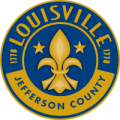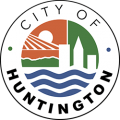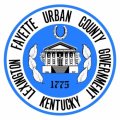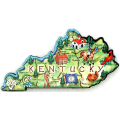Nursing can be a great career choice for anyone interested in healthcare because there are different career paths within the profession to accommodate people with different financial resources, time constraints, and levels of education. From the quickest and least expensive nursing assistant programs to the time-intensive and expensive registered nurse programs, there is surely a nursing program to accommodate your individual needs and aspirations.
Nursing assistant
Kentucky
We've organized a comprehensive list of Kentucky nursing schools. Below you'll find information on specific nursing programs such as LPN certificates and ADN, BSN, and MSN degrees. You'll also find a profile of nursing education and careers in each major Kentucky city.
Owensboro is the county seat of Daviess County, Kentucky, where healthcare is the fourth-largest employer. The industry brings in 6% ($243 million) of the county’s gross product, and the workforce is nearly 5,000 strong. Nurses lead the way. The Owensboro metro area is home to 60 nurse practitioners (NPs), 890 registered nurses (RNs), 290 licensed practical nurses (LPNs), and 570 certified nursing assistants (CNAs).
The Huntington-Ashland metropolitan area is home to more than 8,000 nursing professionals. Most nurses in this metro area earned their degree or certificate at a local college or university. The region is full of top-notch nursing schools, including Kentucky Christian University, St. Mary’s School of Nursing, Marshall University, Ohio University Southern, and Ashland Community & Technical College. Collectively, these schools offer nursing programs at all degree and certificate levels.
If you are a naturally caring person, you should consider entering the nursing profession. There are a wide variety of roles available at various levels of educational preparation. Below we’ve outlined some of the main career options within the nursing field.
Certified nursing assistants (CNAs)
There are several different roles within the nursing field. No matter what level of education you are willing to commit to, there is potentially a job for you. Below we’ve outlined some of the main career options within the nursing field.
Certified nursing assistant (CNA)
As a registered nurse, you love helping patients—and you’re good at it. However, have you ever found yourself wanting more? Have you ever been frustrated that you couldn’t provide a higher level of care for your patients? If so, you should consider an advanced degree in nursing with a master of science in nursing (MSN).
In the healthcare field, employers tend to favor their most educated applicants in the hiring process. That means your best chance of getting hired as a registered nurse (RN) is to pursue a bachelor’s degree. Although you can become an RN with just an associate’s degree, a bachelor’s degree will help you stand out in a field of other highly qualified applicants.
The healthcare field is growing rapidly and there aren’t enough people to fill all of the jobs out there. With a field that wide open, there is plenty of opportunity for you to launch a career as a registered nurse (RN). It only takes two years to complete an associate’s degree in nursing (ADN), which will prepare you for the NCLEX-RN national licensure exam. After you complete the ADN and pass the exam, you’re ready to start nursing.
Licensed practical nurses (LPNs) often provide for their patients’ basic everyday needs, but they have more responsibility for their patients’ medical care than nursing assistants. As an LPN, you might help a patient eat, bathe, or get dressed, but you would also perform tasks like changing bandages, checking vitals, administering medication, and drawing blood.
If you’re aspiring to go back to nursing school, you may be wondering how to pay for it. College tuition is already expensive, and that isn’t the only cost you have to consider. There are also the costs of the application process, other registration fees, textbooks and supplies, and of course your personal living expenses.
Unlike public schools, private colleges and universities are not subsidized by the government, which means they are often more expensive. However, they are frequently viewed as more prestigious, offer a number of advantages that public universities do not, and often make up for their higher tuitions by offering scholarships and financial aid.











